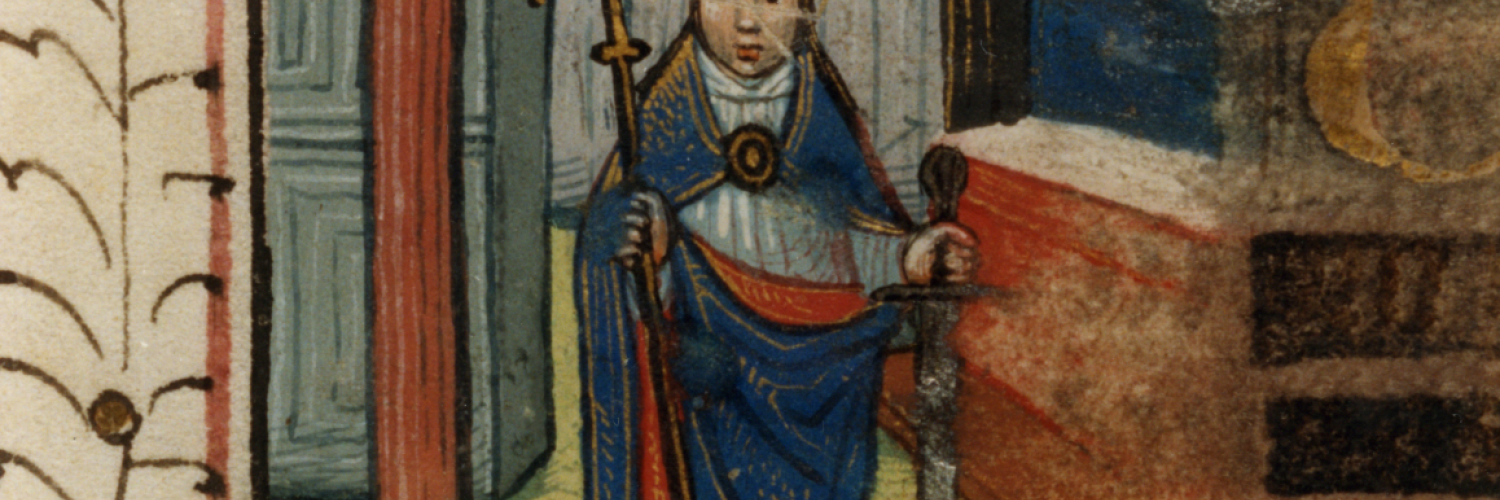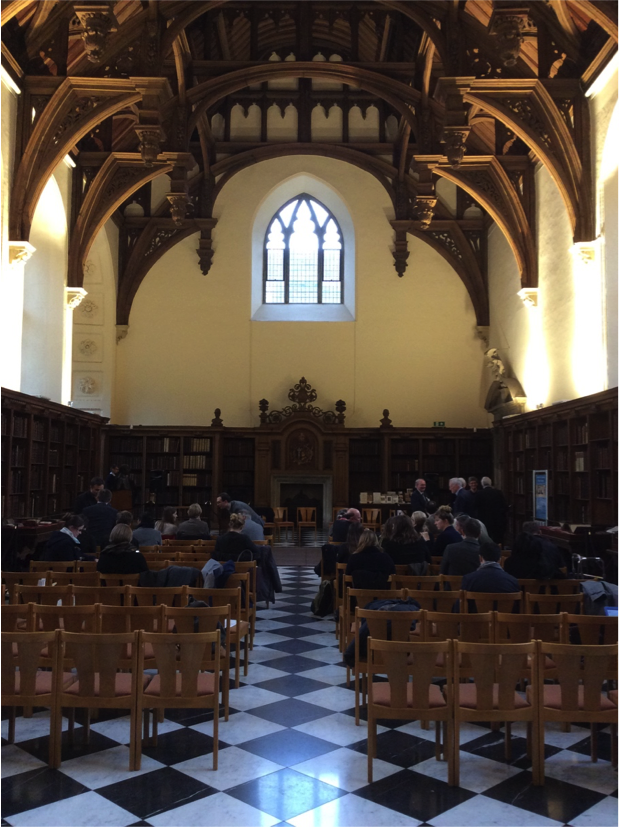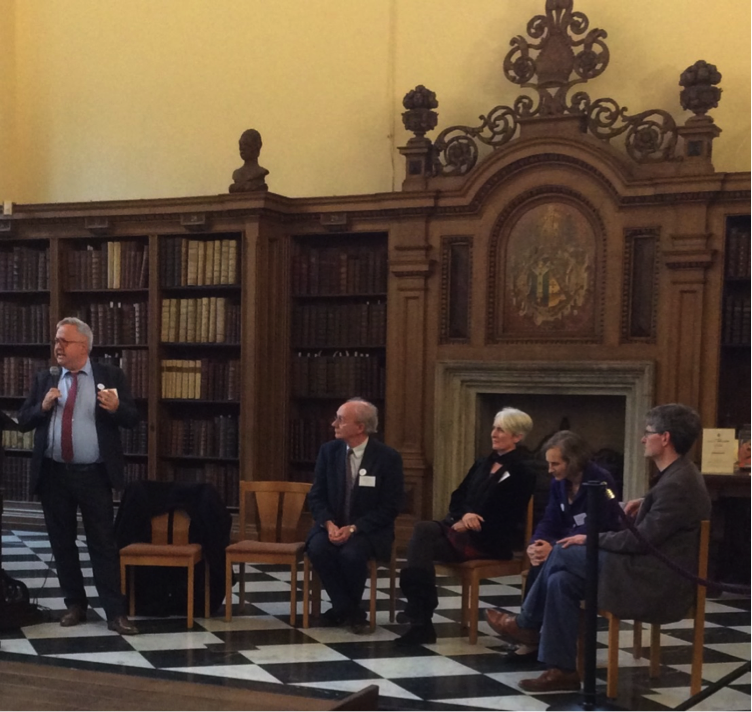
Remembering the Reformation at Lambeth Palace: Postgraduate Symposium Report
Last week ‘Remembering the Reformation’ held its third conference since launching in October 2016. Over 60 postgraduates and early career academics, from universities from across the country and from as far afield as Zurich and Tokyo, gathered on the 25th October in Lambeth Palace Library. In the evening, Professor Diarmaid MacCulloch from the University of Oxford delivered a masterful public lecture in the Great Hall on false memories and distortions in English historiography. Attended by more than 120 people, it provided a stimulating conclusion to the day, drawing out what had emerged as a central theme across the sixteen papers delivered earlier: the nature of anti-memory, those deliberate silences, forgeries, concealments, and omissions that work against accurate recall and form diverting and diluting layers in the historical record which profoundly shape the ways we remember and access the past. Following the lecture, the day ended with a drink’s reception in the grand drawing room of the Archbishop’s Palace.

The symposium has been in preparation since the beginning of the project. The purpose was draw together postgraduates and young scholars working across different disciplines (history, literature, art history, theology), geographies (Scottish churches, urban spaces in Austria, the English and German household, and university settings), temporalities (fifteenth to nineteenth centuries), and religious identities (Lutheran, Reformed and Catholic) for a rich conversation across conventional boundaries of periodisation. Three sets of parallel sessions took place, broadly grouping papers that examined iconoclasm and violence, generational change and familial memory, space and material objects as carriers of memory, biblical texts and literary artefacts of the Reformation, and contemporary theology’s engagement with the historical fault-lines that formed around doctrines and creeds. These papers were inspiring reminders of the multiple ways in which the Reformation has been remembered and forgotten in the centuries since. There are still more stories to tell, and a younger generation of serious and gifted academics are expanding the direction of Reformation scholarship. The conference also demonstrated the flexibility of memory, both as a way of understanding historical transmission and as an intersecting tool with the ability to unite disciplines that too often operate in separation. What became apparent across the multiple presentations was the idea that memory has its own agenda, and that historical commemoration and oblivion closely accompany the history of authority and power, compromise and dissimulation. Featuring the project’s co-investigators and other senior scholars, the final roundtable offered reactions to the days’ content, emphasising the need for interdisciplinary research and the value of both synchronic and diachronic perspectives, as well as interrogating why ‘the Reformation’ and ‘the Renaissance’ have remained the dominant theoretical paradigms for periodising History and Literature respectively.

We are immensely grateful to our hosts at Lambeth, the librarians Giles Mandelbrote and Hugh Cahill, with whom the project has worked closely over the last three years. It was particularly moving to see the Lambeth items from the digital exhibition associated with the four strands of the project — Lives and Afterlives, Events and Temporalities, Objects, Places and Spaces, and Ritual, Liturgy and the Body — displayed in showcases around the Great Hall for participants and the general public to view. We are also grateful to Euan Cameron, Mary Laven, and Alec Ryrie for chairing sessions and contributing their time and thought. The success of Thursday’s event goes to all delegates for their presence, lively reflections, and dialogue. The magician behind the scenes was our project administrator, Dr Tom Taylor, who made all the arrangements and ensured that the whole day was such a success. We are indebted to him. Finally we would like to thank all the staff at Lambeth Palace who made the event run so smoothly.
The full programme can be found below.